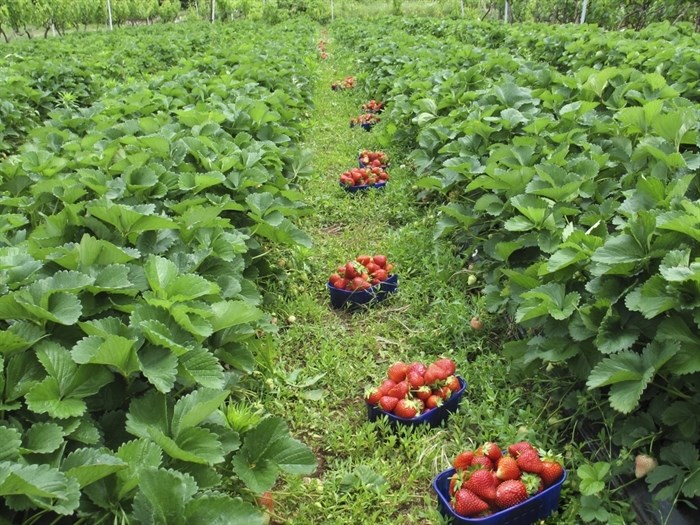
Image Credit: image credit: Shutterstock
February 08, 2021 - 6:00 AM
It promises to be another challenging year for British Columbia agriculturalists relying on foreign temporary workers.
British Columbia Fruit Growers Association general manager Glen Lucas also calls 2021 a year of transition as farmers wait for government to indicate how they are going to support food production and security in the future.
Lucas says recent changes to international travel brought on by COVID-19 restrictions has disrupted the inflow of foreign workers.
“They are considered an essential service, but they still have to follow COVID-19 protocols for air travel, which now requires a negative test 72 hours before arrival in Canada and a new, three-day quarantine,” Lucas says.
A recent request by the federal government to airlines not to provide travel to the vacation hotspots of Mexico and the Caribbean haven’t helped, either.
“Those places are where most of our workers are coming from. When tourist numbers drop on those flights, they get cancelled, and most of the flights we normally book on are no longer scheduled,” he says.
Lucas says the industry is chartering aircraft to bring workers in. He says the flow of workers coming in is uneven, but there is still "a high level of confidence they will arrive."
Farmers and orchardists appreciated the provincial government’s efforts to provide a centralized, managed, two-week quarantine for arriving foreign workers, prior to sending them on to their final agricultural destination last year.
“That seemed to be very effective in controlling COVID-19 outbreaks on the farms, which is seen as very important in our sector. We’re happy to see it continuing this year,” he says.
Foreign workers working in the Okanagan now are assisting in pruning operations. The biggest demand for them in the province right now is for greenhouse workers as vegetable production gets underway.
Foreign workers are most needed in the Okanagan for the cherry harvest, which was decimated by poor spring weather last year. If this year’s crop improves, Lucas suspects the Okanagan will need more workers this year.
“Other sources of assistance has dried up. We were seeing increasing numbers of Eastern European farmworkers, but they can’t get travel visas with COVID-19. International backpackers and those travelling from within Canada are down to next to nothing, and Kelowna has one of the lowest unemployment rates in the province,” he says.
Local workers are important but they tend to be more interested in non-agricultural work.
Growers are being told if labour demands return to average levels, the foreign worker program is going to have to be expanded.
Apple and cherry farmers may find themselves ‘triaging’ their crops as many had to do last year, if labour shortages become an issue.
“Last year, cherry orchardists had to decide whether to stop picking one variety as another ripened, because of a lack of manpower to get everything picked. I think we could see some crop loss this year because of that,” he says.
Last year’s apple prices were disastrous to the Okanagan’s apple growers as well. Lucas says many growers have cut apple orchards down and are leaving the orchard fallow until there are signs of a clearer course in the fruit growing market.
“A lot of growers are going to wait it out and see what government plans to do to support local food production,” he says.
To contact a reporter for this story, email Steve Arstad or call 250-488-3065 or email the editor. You can also submit photos, videos or news tips to tips@infonews.ca and be entered to win a monthly prize draw.
We welcome your comments and opinions on our stories but play nice. We won't censor or delete comments unless they contain off-topic statements or links, unnecessary vulgarity, false facts, spam or obviously fake profiles. If you have any concerns about what you see in comments, email the editor in the link above.
News from © iNFOnews, 2021